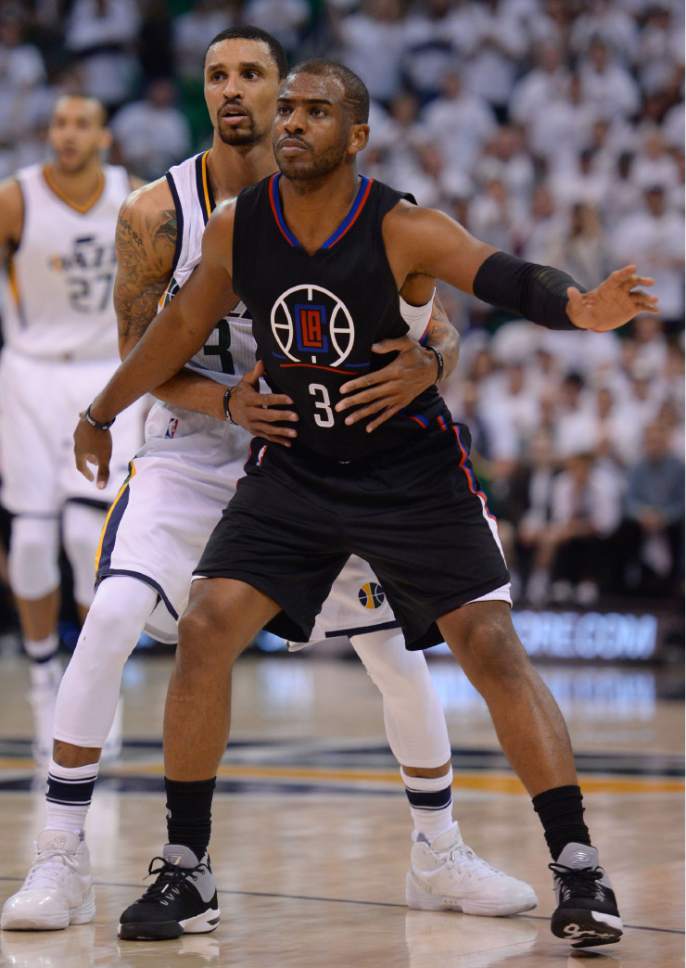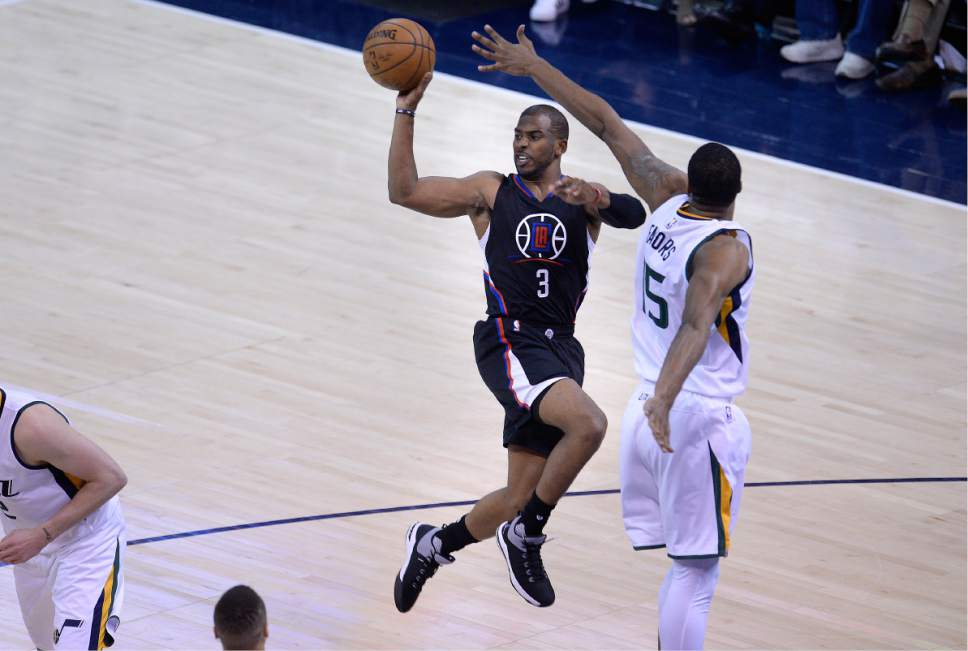This is an archived article that was published on sltrib.com in 2017, and information in the article may be outdated. It is provided only for personal research purposes and may not be reprinted.
Thanks to Joe Johnson's shooting and passing, the Jazz scored 22 points in a six-minute stretch of Sunday's fourth quarter.
That's the same team that went six minutes without scoring in Friday's fourth quarter.
The Jazz were leading by eight points midway through the fourth period of Game 3 vs. the Los Angeles Clippers, and their fans were eager to enjoy the franchise's first home playoff victory in seven years.
The celebration came 47 hours later in Game 4.
That's because the Jazz lost the game they were controlling, and they won the game that was getting away from them. Viewed from the other perspective, the Los Angeles Clippers rallied to win Game 3 and lost a seven-point lead in the last seven minutes of Game 4, a 105-98 Jazz victory Sunday night at Vivint Smart Home Arena.
Beyond all of the personnel issues, the unpredictability of this series is captured in two snapshots from the weekend — the Clippers' 15-0 run in Game 3 and the Jazz's 19-5 run in Game 4. Each team could blame both offensive and defensive lapses for what unfolded in games they seemingly had won.
The what-ifs evened out in Salt Lake City, maintaining a tie in the best-of-seven series. Game 5 is Tuesday night in Los Angeles.
The Clippers succeeded without Blake Griffin in Game 3, thanks to Chris Paul's scoring nine straight points. But then Paul missed two shots and committed a traveling violation as the Clippers faded in the key moments of Game 4. During the Jazz's run, the Clippers made five free throws, but missed seven shots from the field and had two turnovers.
The Jazz staged their decisive push without Gordon Hayward, who missed the second half due to illness, and mostly without Rudy Gobert, even though the center had returned to action for the first time since injuring his knee on the the opening possession of Game 1 and played 24 minutes. Johnson scored 11 straight Jazz points after they trailed 87-80 with seven minutes remaining. The Jazz hit nine shots in a row — scoring 22 points on 10 possessions, while losing one turnover. After his own scoring flurry, Johnson assisted on 3-pointers by Joe Ingles, Rodney Hood and Ingles again, completing the most dominant individual six-minute offensive performance in Jazz playoff history.
That display of efficiency came two nights after the Jazz went six minutes without scoring in the fourth quarter of Game 3. They missed seven shots during that stretch, with Johnson being blocked by DeAndre Jordan in the lane and missing a 3-point attempt, among the team's other failures.
What happens now? Nobody can say they know how this series will end, judging by the finishes of Games 3 and 4. The overlooked truth of Game 1 was that the Jazz lost an eight-point lead in the last eight minutes as Paul's driving shot tied the game, before Johnson's buzzer-beating shot rescued a Jazz victory.
Game 2 is the only one that played itself out with any degree of consistency, as the Jazz never could crack a six-point deficit in the fourth quarter.
Twitter: @tribkurt





